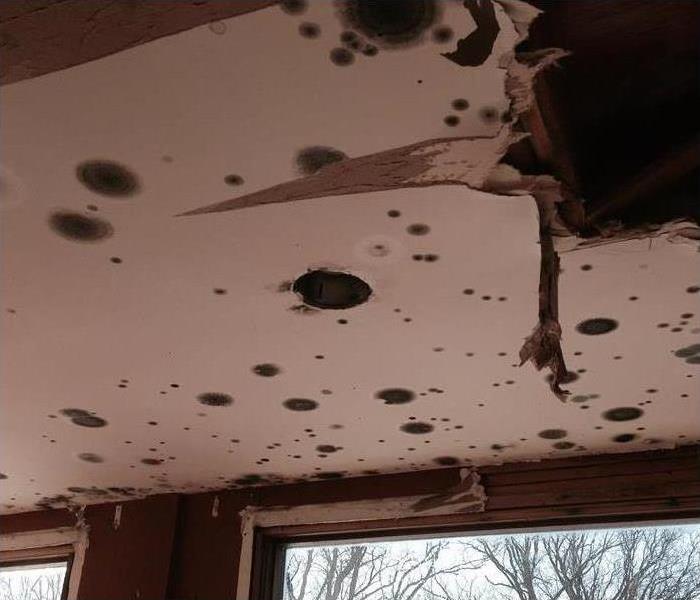3 Facts About Post-Flooding Mold and How To Prevent Its Spread
3/31/2022 (Permalink)
Three Things to Know About Post-Flooding Mold and How to Prevent It
Many problems can crop up after a flood in your North Aurora, IL, home. Foul smells, stagnant water and debris may all plague your property; however, few issues can be as troublesome as mold growth. Fungi can form as soon as a day after the flood, especially when humidity levels in your home are high. If you are battling mold after water damage, there are a few facts to keep in mind when it comes to finding growths and preventing their spread.
1. Mold Does Not Need Sunlight To Grow
Unlike many other organisms, mold does not depend on sunlight to thrive. Instead, it seeks out moist, humid areas where spores attach and begin to eat. After a flood, building materials like wood and drywall attract spores or absorb them during the flood. It can grow out of sight, inside walls and under cabinetry, where you may not notice it until you smell the odor fungi releases as it eats. After a flood, it is a good idea to have your home inspected for mold.
2. Mold Is Different Than Mildew
While both mold and mildew have a great deal in common, they are not exactly alike. Mildew tends to grow on the surface of building materials and household items, but it can generally be wiped away with a cloth and household cleanser. Mold, however, grows roots once the spores attach and cannot be easily cleaned away. Using bleach is not effective either, as fungi is not bacteria and the water content in most cleaning products may only encourage further mold growth.
3. Some Molds Require Professional Removal
Standing water and high humidity can cause severe fungi growth, including invasive black mold. Because this is a type of fungus that can be difficult to clean, you may consider calling in a storm damage and flood restoration service for assistance. Mold specialists have the experience and tools necessary to eliminate this issue and ensure it does return.
Flooding often causes sudden mold growth, which can affect your North Aurora, IL, home. Knowing how to target and remove damaging fungi can be an important step in the restoration of your property.




 24/7 Emergency Service
24/7 Emergency Service
